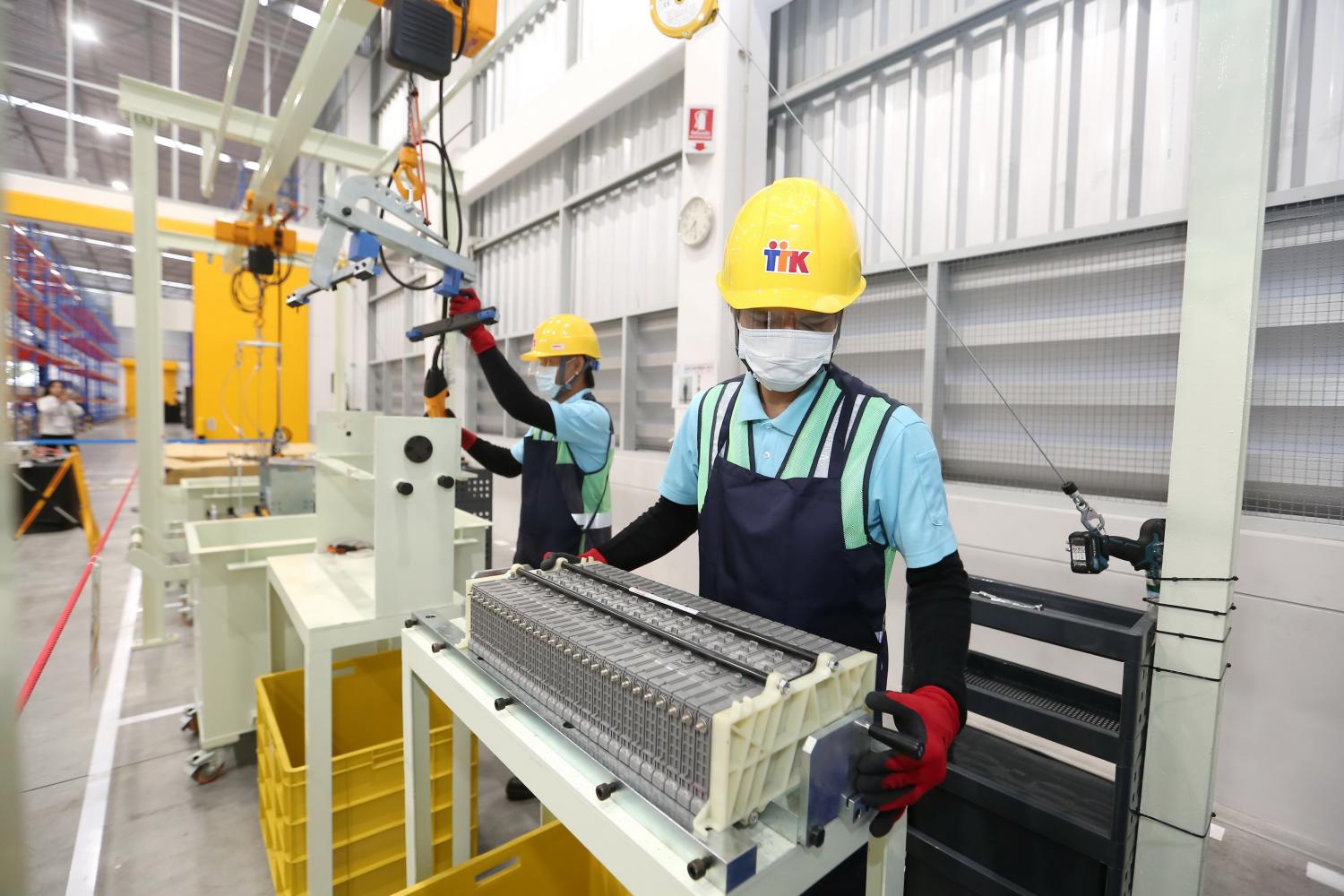
Toyota Motor Thailand has opened a battery life cycle management plant in Chachoengsao, the first overseas facility outside Japan, to circulate batteries of hybrid cars sold in Thailand.
The new facility is a partnership with Toyota subsidiaries and affiliates, comprising Toyota Daihatsu Engineering & Manufacturing (TDEM), Toyota Motor Asia-Pacific, Toyota Tsusho Thailand, Denso Thailand and Siam Waste Management.
The facility is run by TTK Logistics Thailand, a subsidiary of Toyota Tsusho, and is located adjacent to Toyota's passenger car plant and battery assembly plant in Chachoengsao.
Ninnart Chaithirapinyo, chairman of Toyota Motor Thailand, said the facility supports local sales of hybrid cars.
Hybrid cars are the lowest level of technology for electric vehicles, in which the batteries need to be circulated and managed in a 3R scheme (rebuild, reuse and recycle).
Mr Ninnart declined to provide a budget for the facility, saying only that the plant will have capacity to rapidly diagnose 10,000 units a year and recycle 20,000 units a year.
He said Toyota started to sell hybrid cars in Thailand in 2009, with 5,000-6,000 batteries exported to Belgium a year under the 3R scheme.
"This facility will serve not only Toyota's hybrid cars, but also batteries from other brands and electric devices," Mr Ninnart said. "We are in talks with relevant companies to provide our services."
After the rapid diagnostic process, the high-efficiency modules will be reassembled and sold as alternative hybrid rebuilt batteries at one-third the price of new batteries.
The moderate-efficiency modules still capable of storing electric charge are reused for energy storage to reserve and supply energy for buildings, factories and charging stations.
The low-efficiency modules, both nickel metal hydride and lithium-ion batteries, will be sent to recycling then shipped back to Japan to produce new hybrid batteries.
Mr Ninnart said Toyota has studied the circular economy concept for two years and is using operating methods developed in Aichi prefecture under Toyota Energy Solutions and Primearth EV Energy.
Toyota was the first to bring hybrid models to market in Thailand, with roughly 78,000 such cars sold as of August.
In 2019, Toyota forecasts sales of all EVs at 36,000 cars, of which 19,000 are expected to be hybrid versions.
Toyota has spent 19 billion baht on hybrid car production in Thailand, with plans to assemble 7,000 hybrid cars a year, make 70,000 batteries and produce 9.1 million units of other parts at the Gateway plant in Chachoengsao.